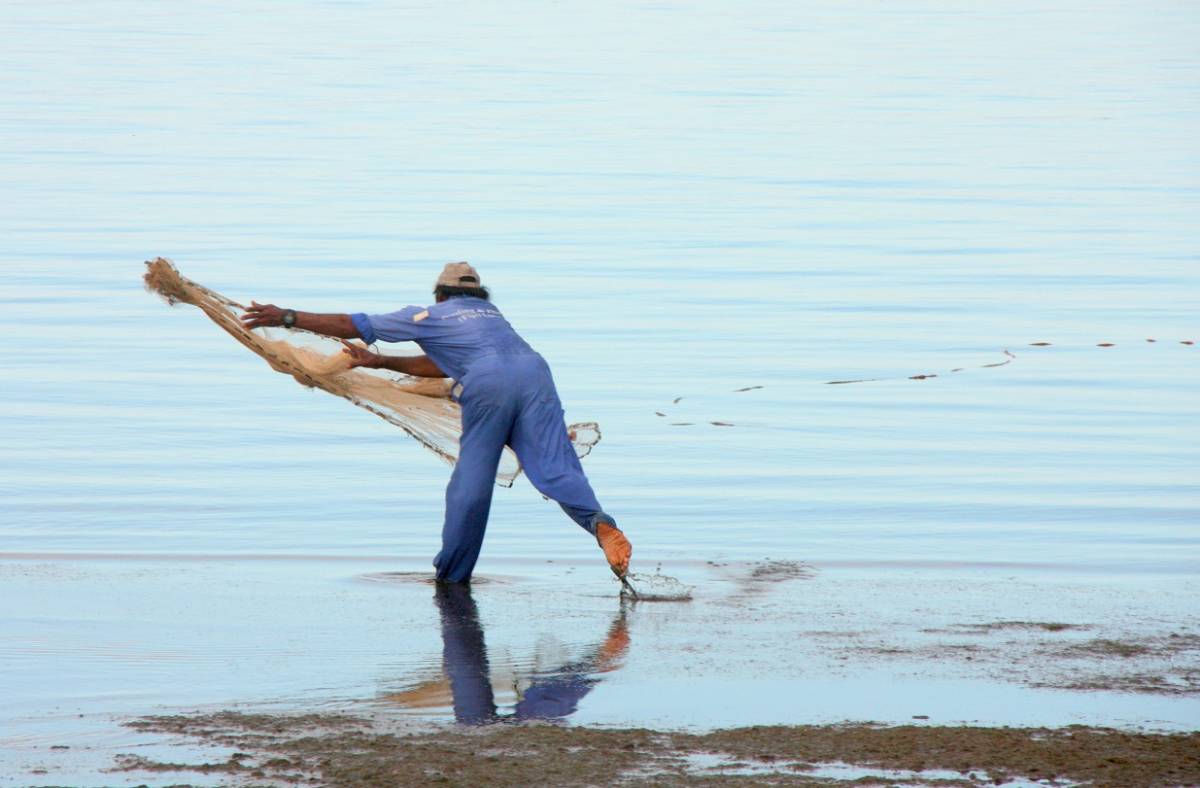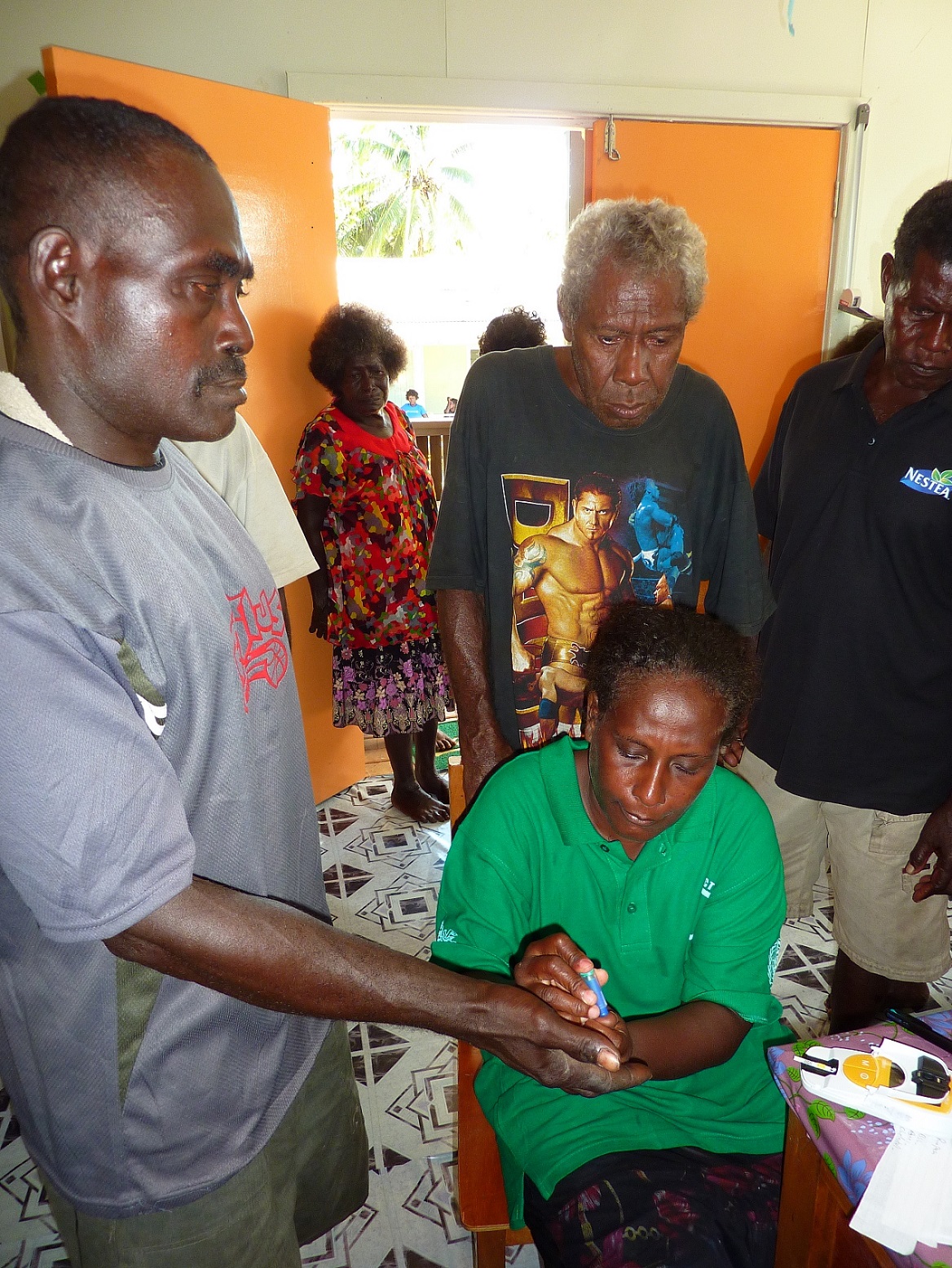On this page
Our regional IDC programme invests in activities that focus on:
- Progressing regional objectives and enhancing the Pacific’s international influence;
- Improving inclusive well-being, including through broad-based prosperity, sustainability and regional stability.
New Zealand is a member of a range of regional organisations and platforms that deliver development cooperation programmes across the Pacific, and to maintain a strong regional architecture for Pacific countries to discuss and coordinate responses to priority challenges facing the region.
Key regional priorities include fisheries and oceans, climate change and the environment, broad-based economic resilience, labour mobility and trade architecture (including PACER Plus), good governance, regional security and stability, human rights and inclusive development. You can find out more about these priorities below.
Fisheries
Supporting sustainable fisheries

Fisheries are vital to the economies, livelihoods, food security, and social and cultural well-being of many Pacific countries, and can be a crucial source of government revenue.
Just over half of the world’s tuna supply comes from the Western and Central Pacific Ocean (WCPO) area. The tuna, valued at US$6.1 billion in 2023, is sourced mostly from the exclusive economic zones of Pacific countries and territories. It is the world’s largest, most economically valuable, and most biologically sustainable tuna fishery.
Through its International Development Cooperation (IDC), New Zealand supports the management and development of sustainable fisheries for the benefit of Pacific countries, and the region. This support contributes to building economic resilience through fisheries in Pacific countries.
Through its IDC, New Zealand’s seeks to:
- Improve the sustainable management of coastal and oceanic fisheries.
- Improve the economic returns from fisheries.
- Support robust science for sound decision making, including climate science.
- Reduce illegal, unreported, and unregulated fishing.
- Build capacity and capability.
- Support regional agencies to provide technical support to members.
As many of these issues are interrelated and transboundary, they benefit from regional approaches.
Approximately half of New Zealand’s IDC for Pacific fisheries goes to regional agencies with whom we have longstanding and trusted relationships – notably the Forum Fisheries Agency and the Pacific Community.
Improving aviation safety and security
Regional aviation safety and security is vital to the economies of Pacific countries for tourism, trade and connectivity.
MFAT is working with our Pacific partner countries to improve aviation security at airports through the provision of new airport security scanning equipment programme ($11.4m) at international airports in Cook Islands, Niue, Kiribati, Samoa, Solomon Islands and Tonga. The package includes x-ray scanner machines for carry on and hold luggage, walk through metal detectors and explosive detection, plus three years of maintenance and spare parts. Complementary to this equipment installation, our partners at the Civil Aviation Authority of New Zealand (CAANZ) are providing oversight of the installations, commissioning, and airport security operator training.
CAANZ also provides ongoing regulatory and technical advice, capacity building and training for aviation regulators and airport authorities. This support helps Pacific Island regulators comply with International Civil Aviation Organisation (ICAO) regulations and to increase the results of their ICAO safety and security audits.
At the regional level, MFAT provides core funding ($9.1m over 5 years to 30/6/2026) to the Pacific Aviation Safety Office (PASO), a Council of Regional Organisations of the Pacific (CROP) agency. PASO provides technical and regulatory advice and support to Pacific Island countries to improve aviation safety and security. PASO provides these services to signatories of the Pacific Islands Civil Aviation Safety and Security Treaty (PICASST), which includes Cook Islands, Nauru, Niue, Kiribati, Papua New Guinea, Samoa, Solomon Islands, Tonga, Tuvalu. New Zealand also serves on the PASO Governing Council, with CAANZ as Council Member and MFAT as alternate.
Improving maritime safety
New Zealand continues to play a leading role in providing maritime safety support to a number of Pacific states since 2013. The current $9.5m five-year Pacific Maritime Safety Programme (through to 30/6/26) is delivered in partnership with Maritime New Zealand and provides safety initiatives in the Cook Islands, Kiribati, Niue, Samoa, Tokelau, Tonga and Tuvalu.
Initiatives include:
- raising awareness of, and engagement in, maritime safety amongst the community, institutions and government
- supporting maritime sector regulatory agencies to meet their obligations
- meeting local training needs
- improving vessel seaworthiness
- assisting with Search and Rescue planning, and with preparedness and response to marine oil spills, including providing oil spill clean up equipment and on the water training.
Health
Preventing and controlling non-communicable diseases

Non-communicable diseases (NCDs) include cardiovascular disease, diabetes, cancers, and chronic respiratory disease. These diseases are responsible for approximately 75% of deaths in the Pacific.They end lives prematurely, severely affect the quality of life for many more and impose large yet preventable costs on country budgets that are already stretched.
We prioritise investments in evidence based preventive and primary care approaches that benefit the entire population.
Our support focuses on:
- Tobacco control through legislation and policies, and community based interventions
- Primary care capability to detect and manage NCDs and their risk factors
- Data collection on NCDs through the MANA dashboard and STEPS surveys
- Building capacity for policy development to address NCDs and their risk factors, and for monitoring and evaluation of programmes and interventions
Sexual and Reproductive Health and Rights
Sexual and reproductive health and rights (SRHR) are essential for improving the health and wellbeing of individuals, families and communities and for sustainable development. There are significant SRHR challenges in the region including:
- high levels of unmet need for contraception,
- high levels of sexual and gender-based violence (SGBV), and
- high adolescent pregnancy rates which prevent girls from attending school and participating in the workforce.
Our support aims to increase access to comprehensive sexual and reproductive health information and services, with a focus on family planning, strengthening country health systems, and grassroots advocacy efforts.
Improving child health and nutrition
The first 1,000 days of life is a critical period where preventable causes of illness and mortality can be addressed. Our support delivers essential childhood immunisation and nutrition interventions to improve childhood health outcomes, including reducing neonatal mortality and the prevalence of stunting. These interventions can promote children’s cognitive development, enhance their learning ability, and in the long-term, lead to improved health, social and economic outcomes.
Health security
Communicable diseases continue to pose a health burden in Pacific countries with risks for outbreaks to spread within the region.
By building public health preparedness and response capabilities, and preventing communicable diseases and reducing transmission, regional health security is strengthened.
Our support looks to:
- Enable immunisation against vaccine preventable diseases
- Strengthen early detection and management of disease outbreaks through surveillance, risk assessment and response, laboratory strengthening, infection prevention and control and risk communication.
Education
Trilateral Support for Education Quality and Assessment in the Pacific
Pacific governments have made significant progress in improving access and participation for their students. Their focus is now on improving the quality of education provision so that young people are equipped with the skills they need to succeed in life and work.
The Educational Quality and Assessment Programme (EQAP) at the Pacific Community (SPC) is a valued and respected partner working across the Pacific region to raise the quality of education. As the key technical agency in the region for education, EQAP supports the development of assessment practice, curriculum and teacher standards, and the effective use of data across the Pacific.
We are working with Australia to jointly provide broad-based support for EQAP and their work.
We have previously worked with EQAP to deliver successful projects but this new approach provides greater flexibility, better donor alignment and a more sustainable way of delivering services. EQAP is able to engage in longer-term planning to support Pacific countries, as well as to deliver significant regional initiatives like the Pacific Islands Literacy and Numeracy Assessment.
| Total IDC expenditure for Pacific Regional 2021/22–2023/24 | $440.51 million |
|---|---|
| 2021/22 | $116.15 million |
| 2022/23 | $150.85 million |
| 2023/24 | $173.51 million |

